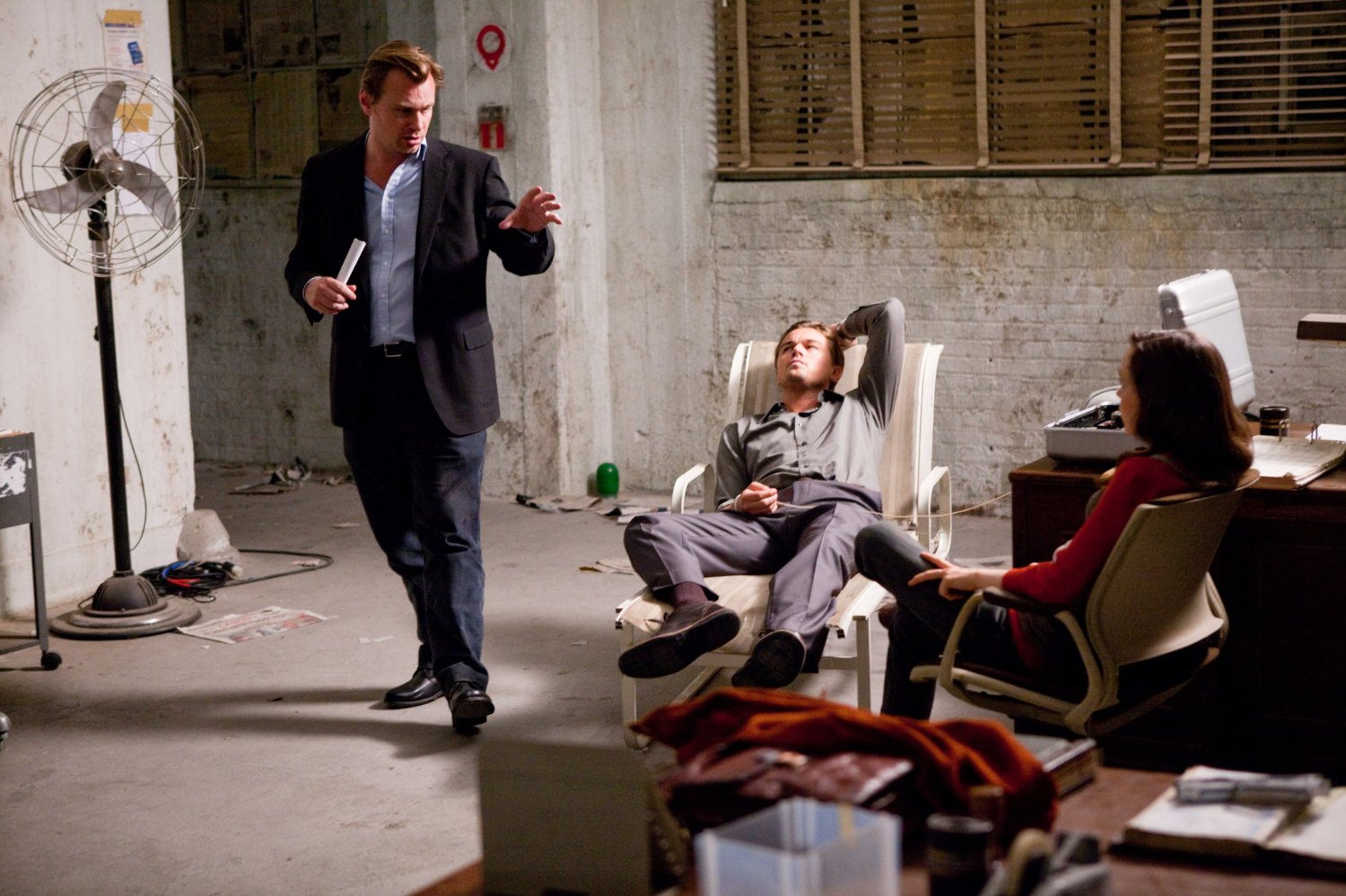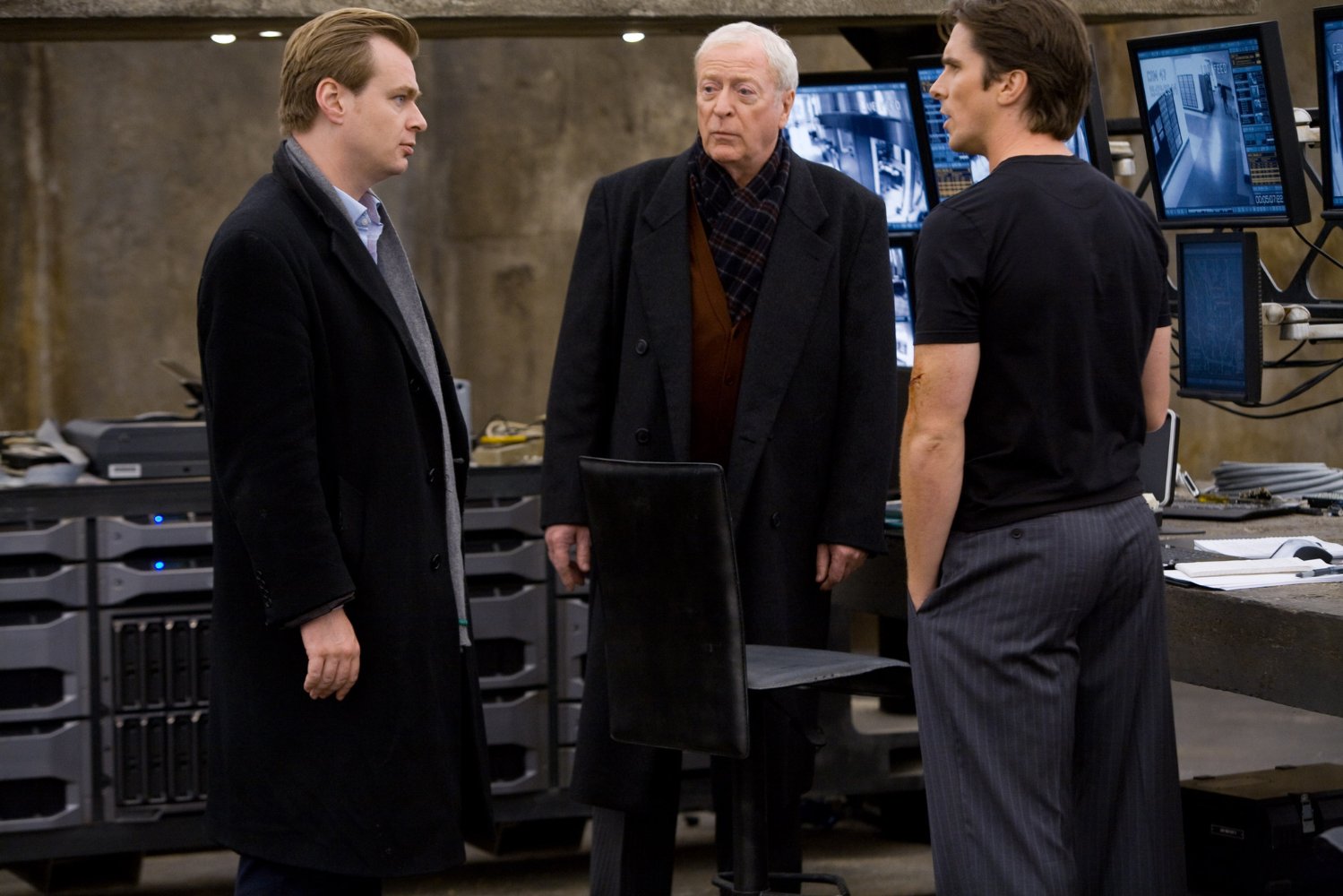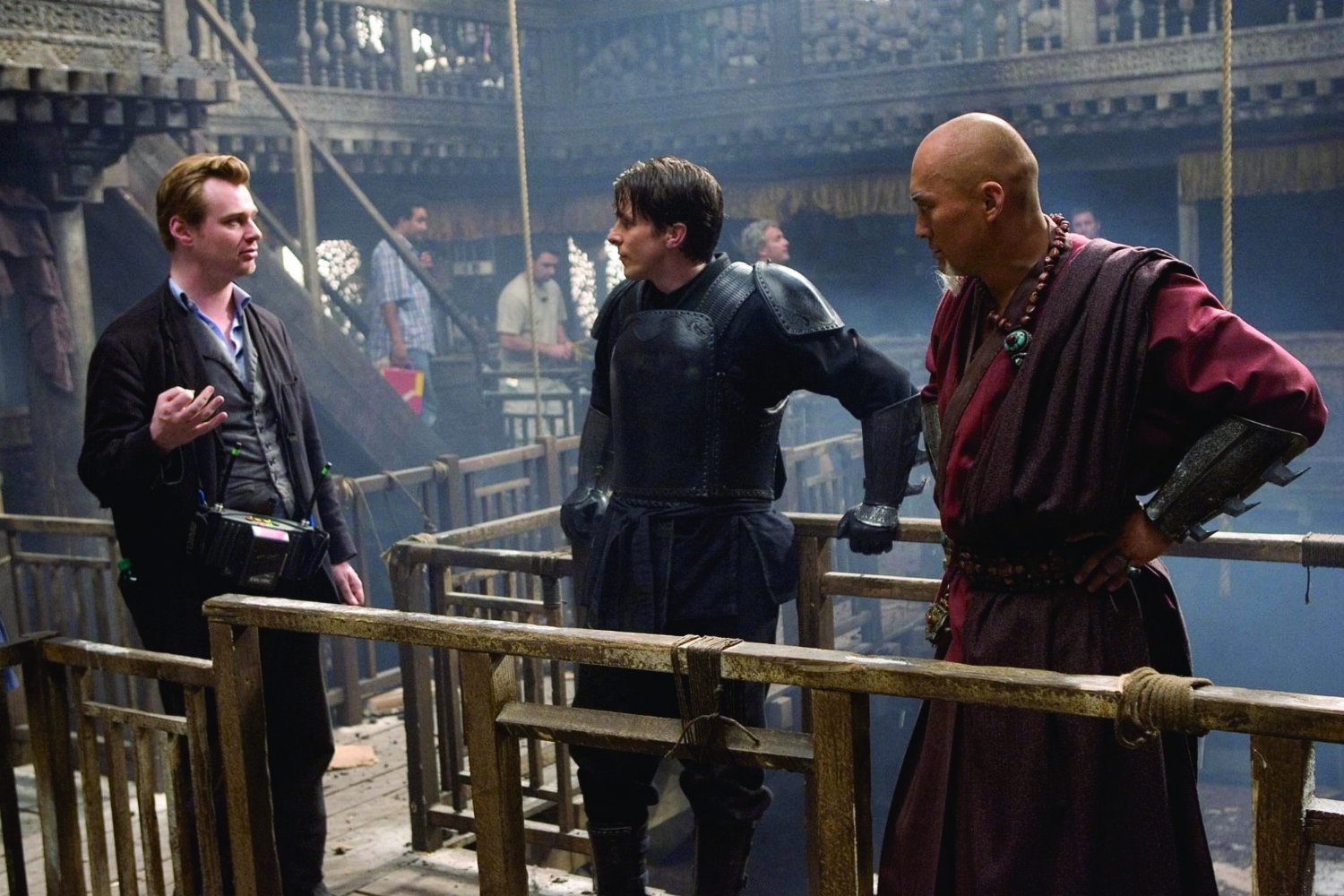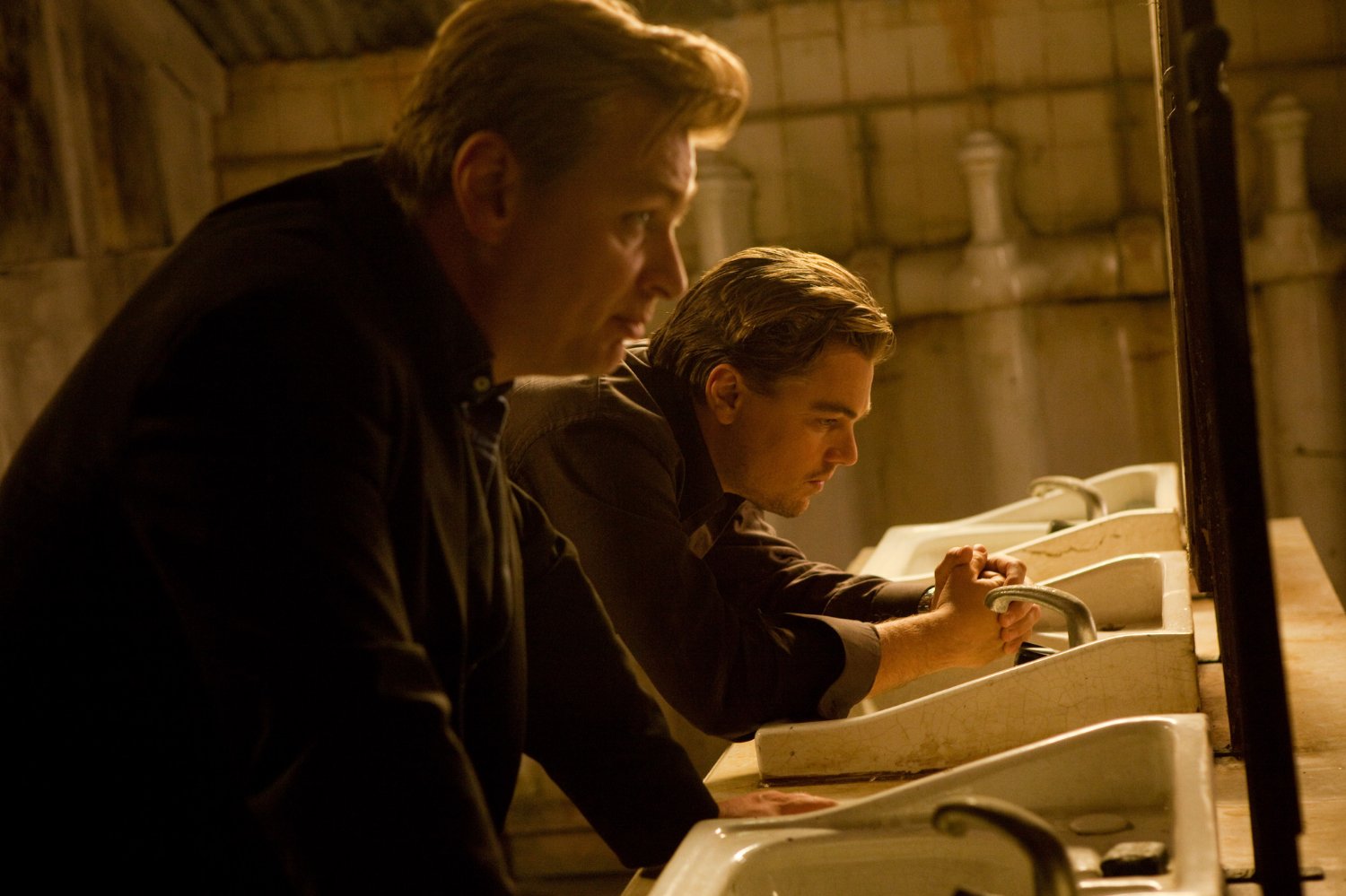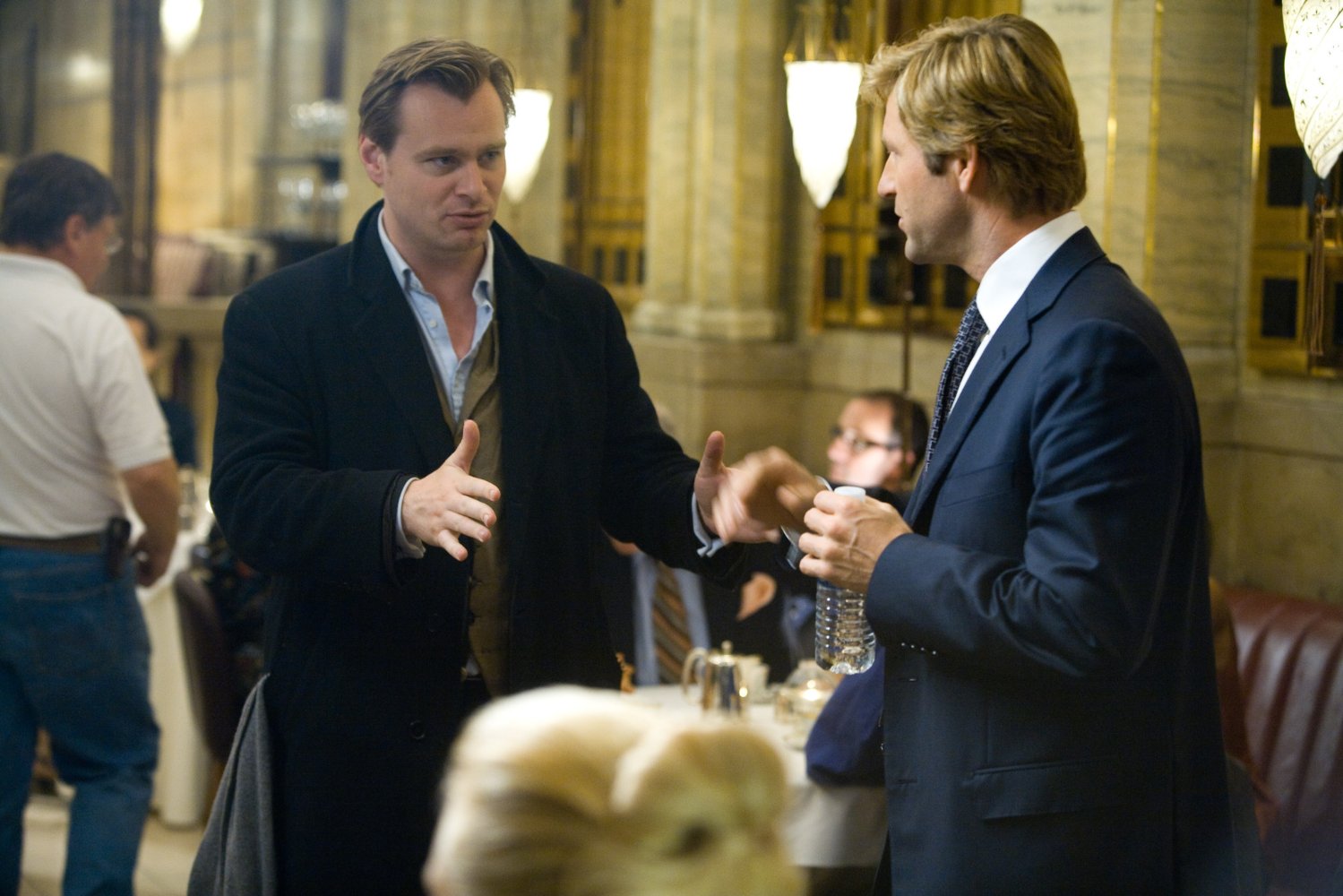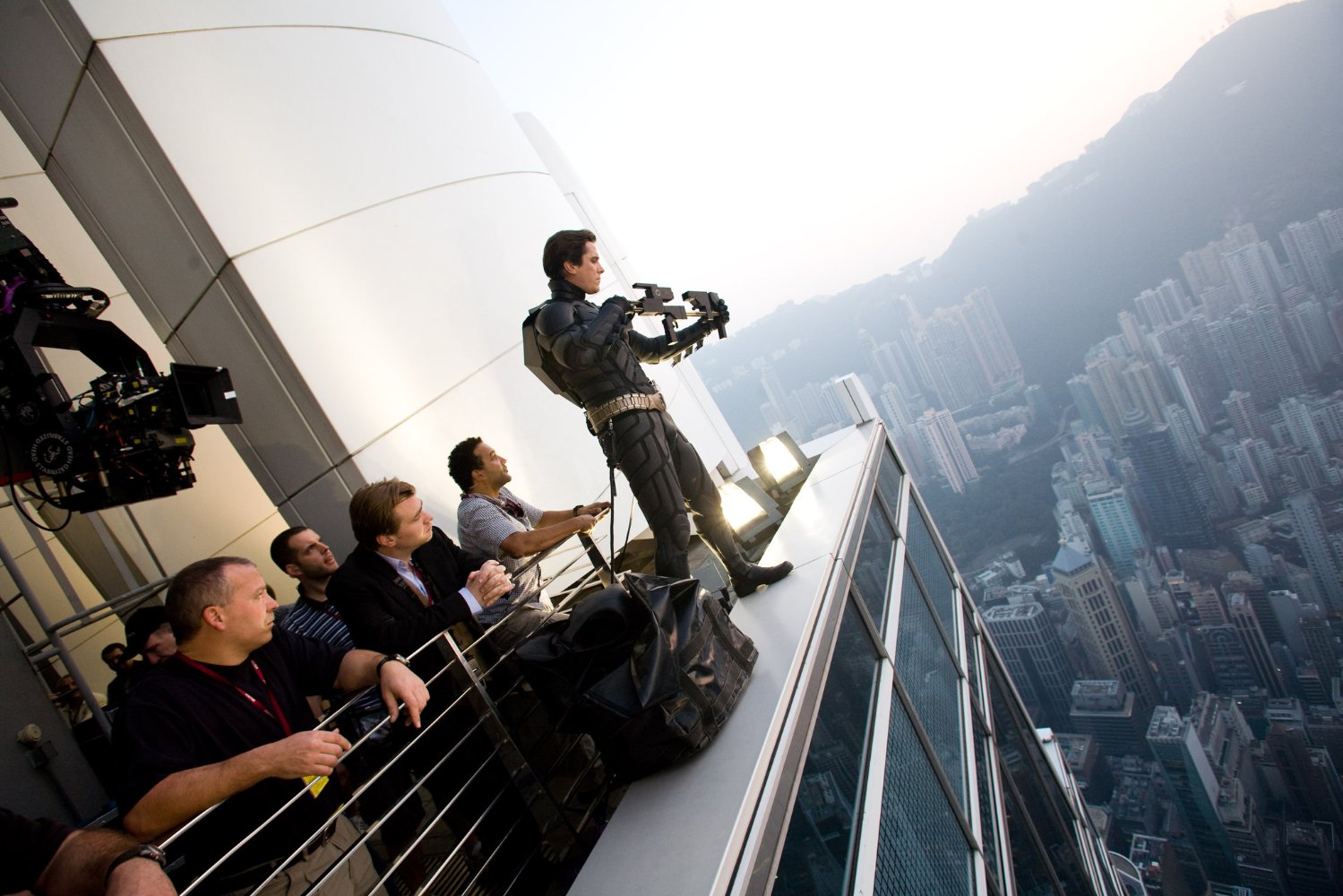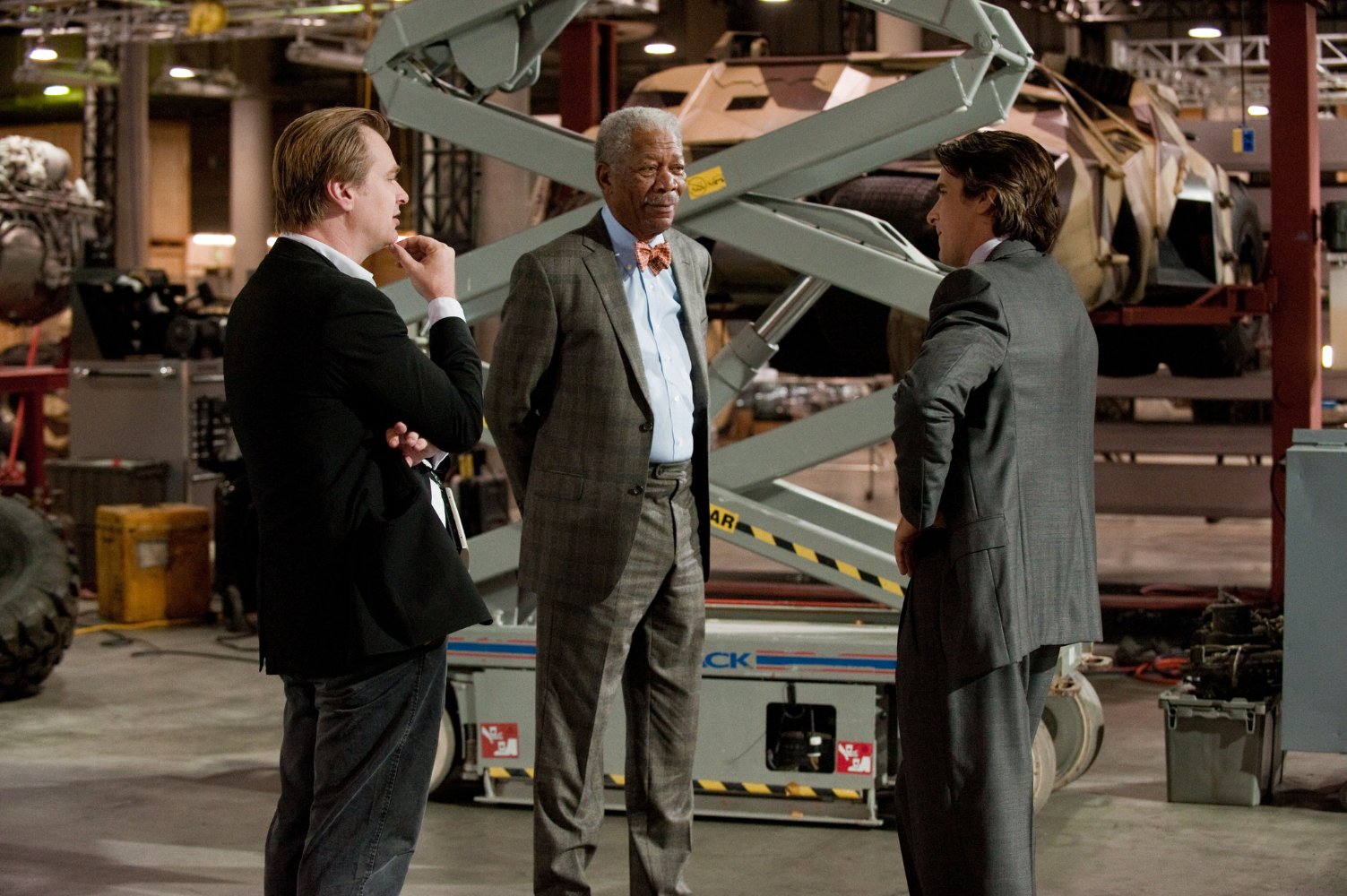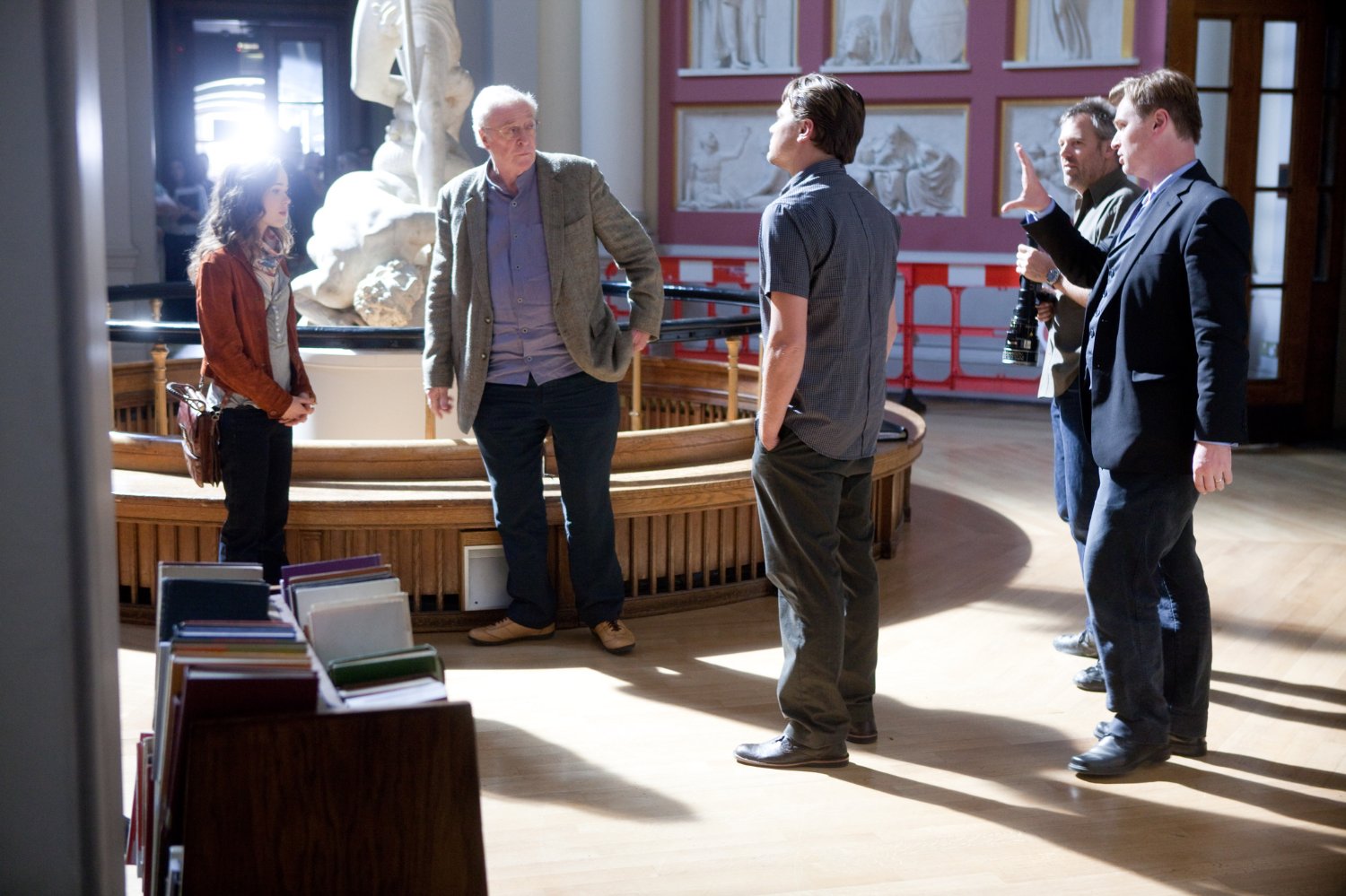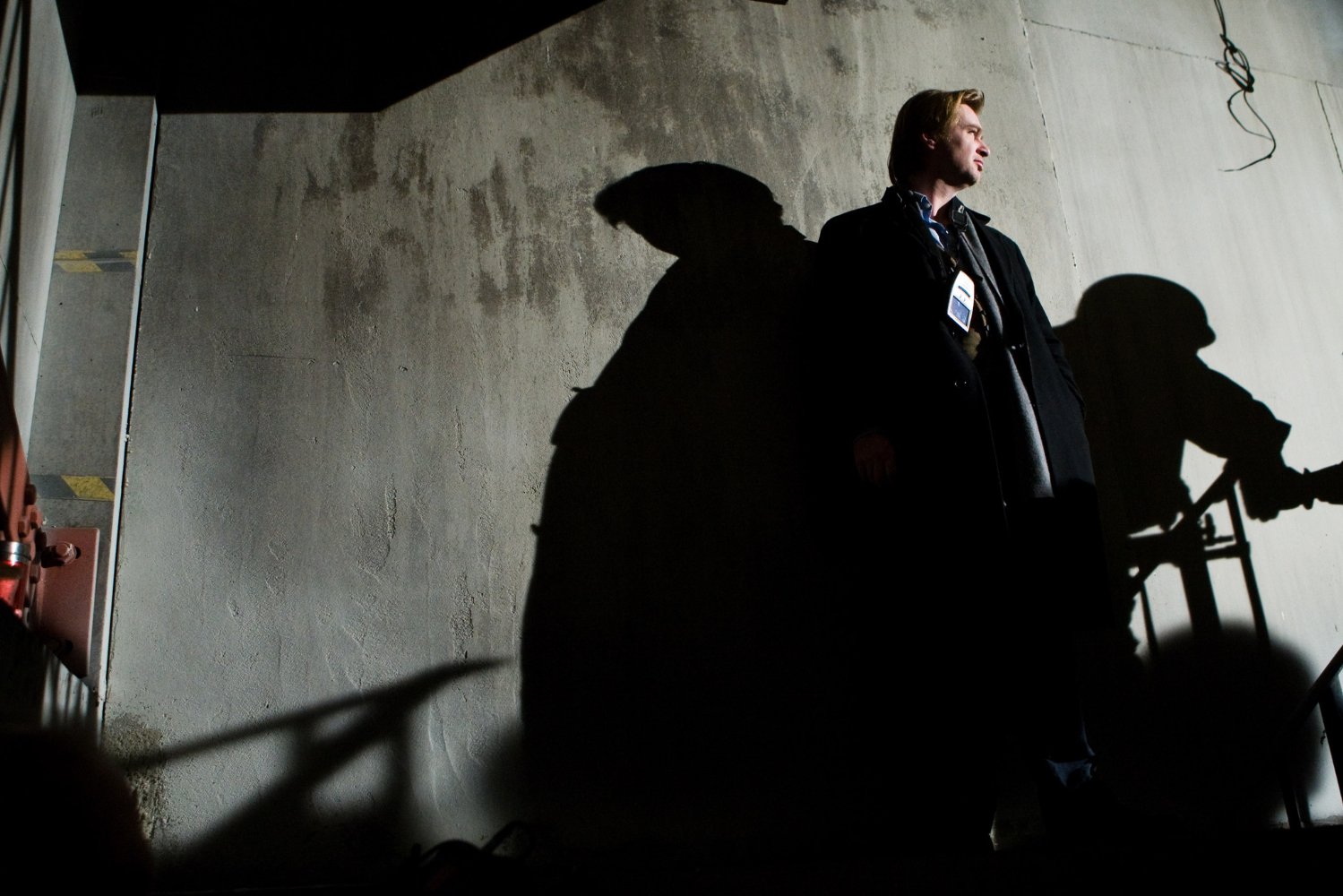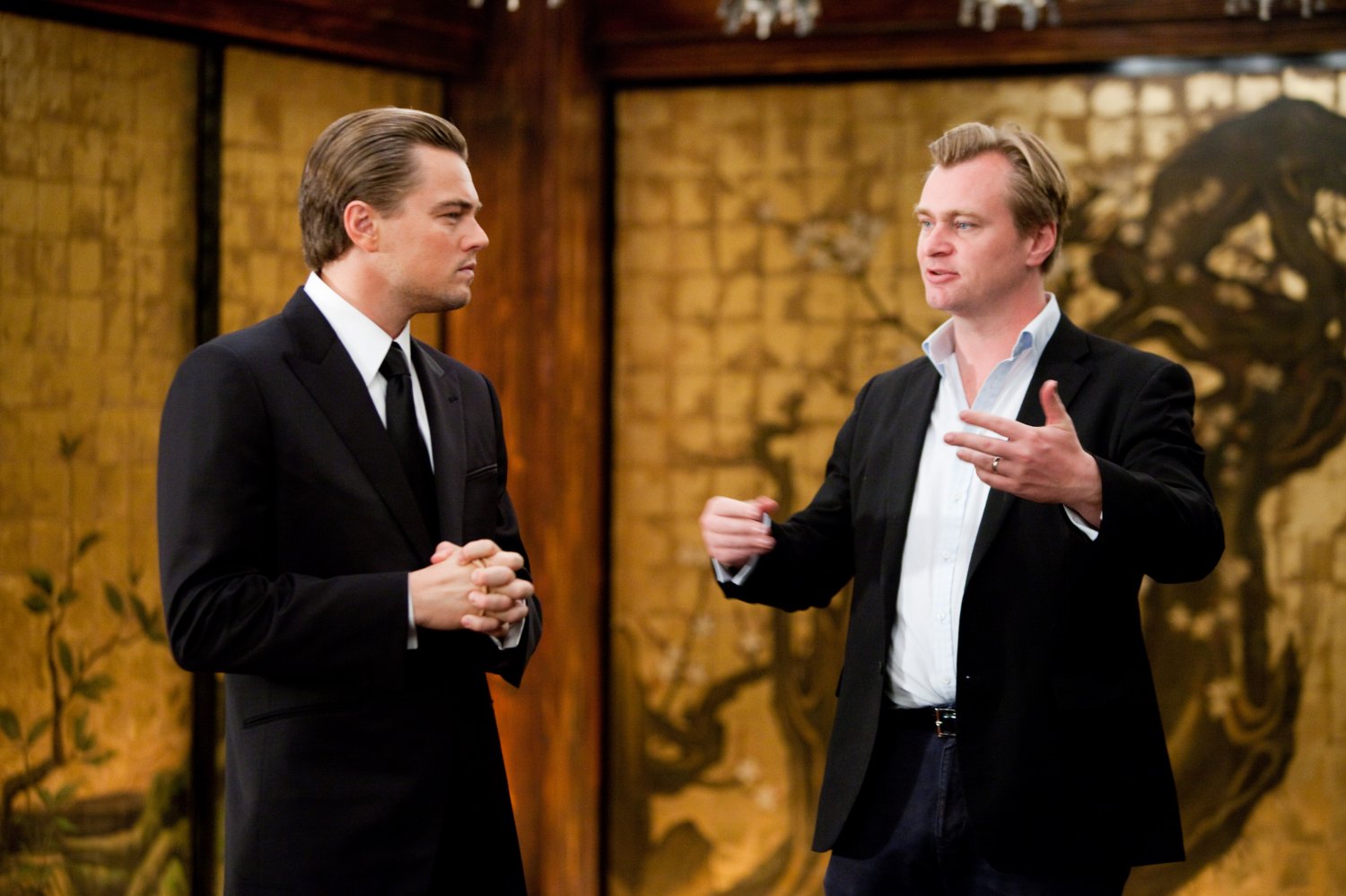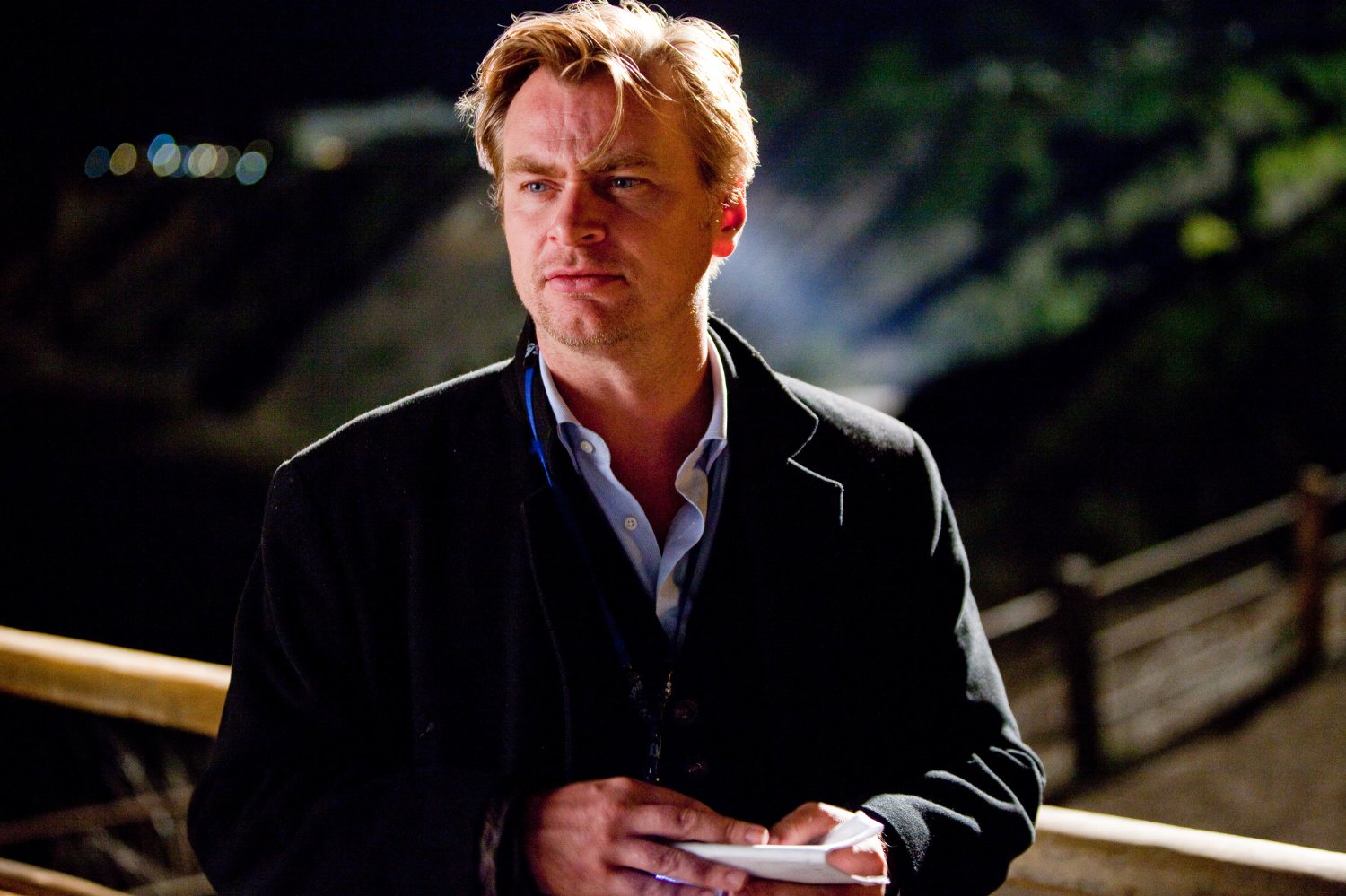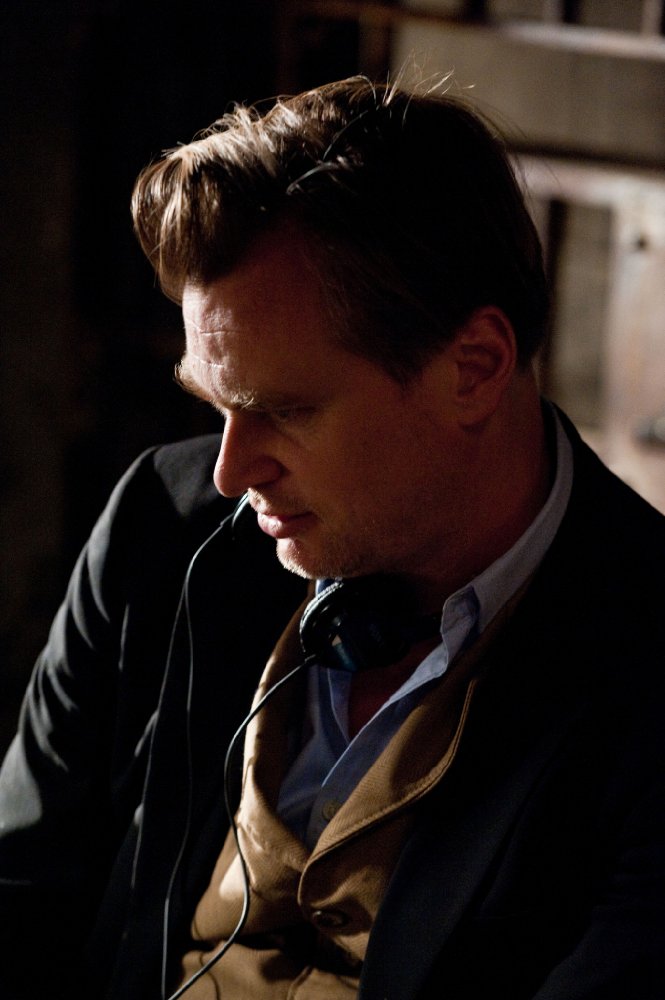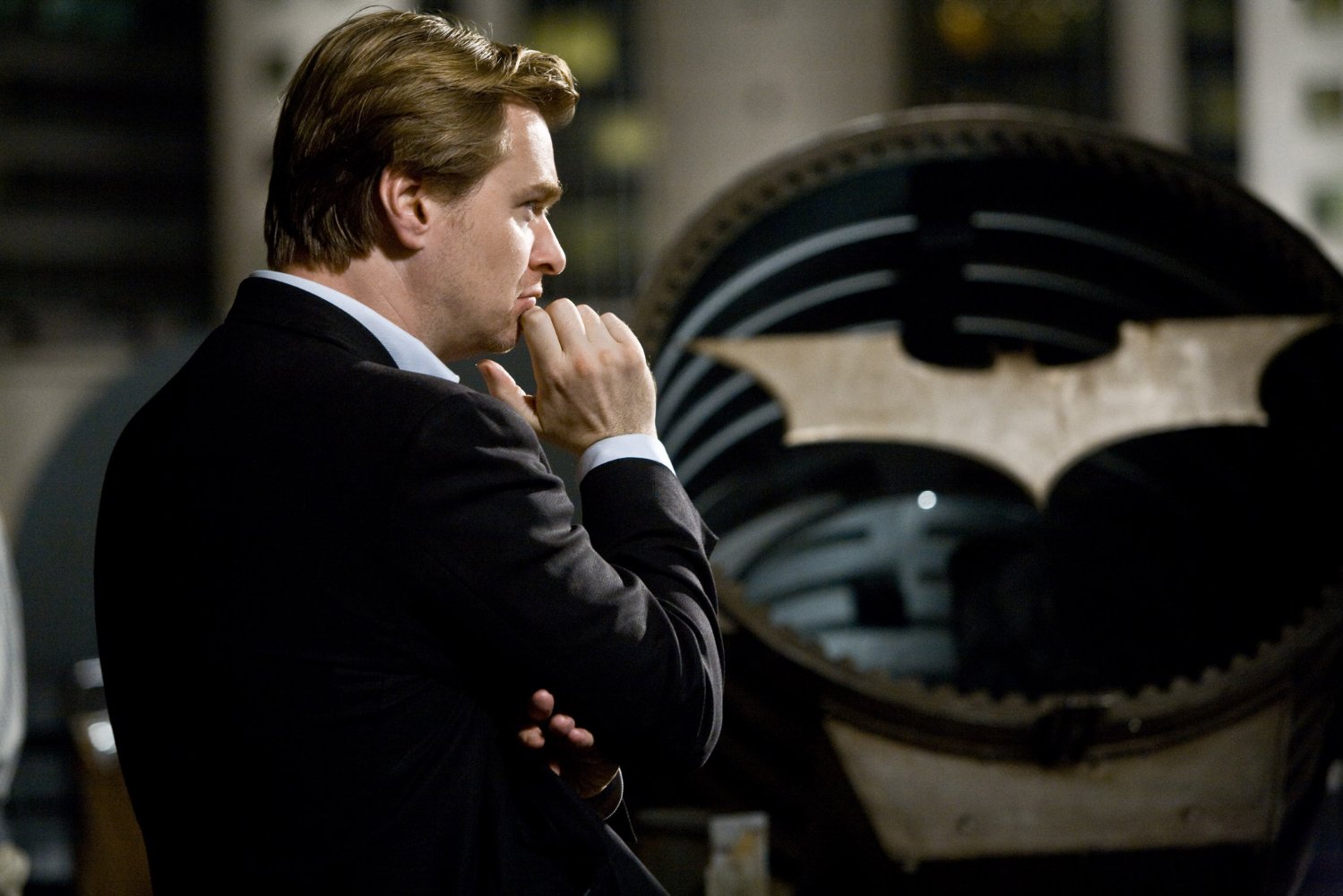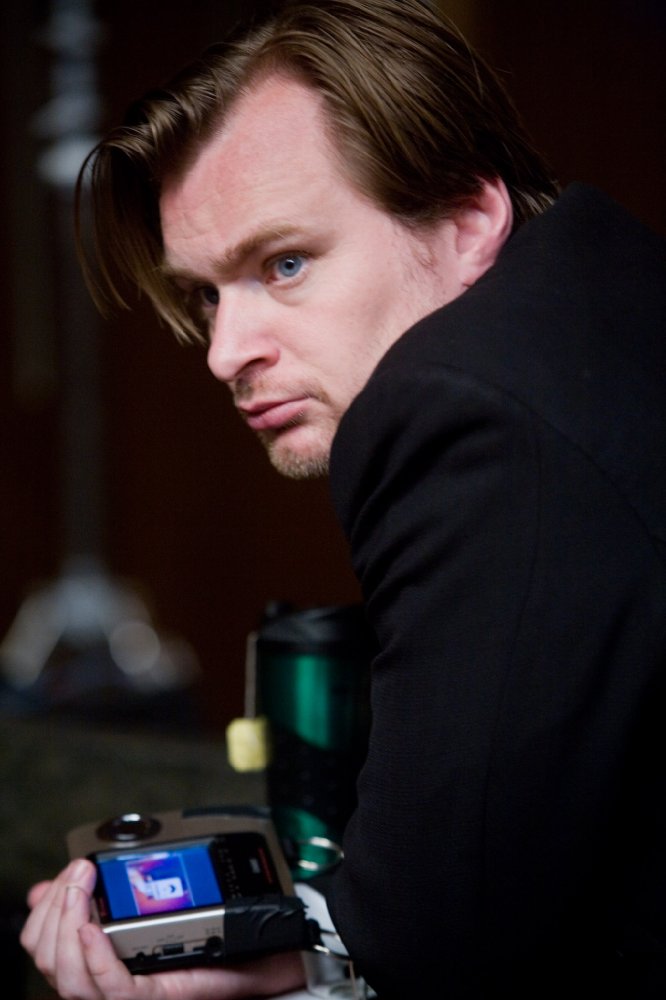
Christopher Nolan
Birthday: 30 July 1970, London, England, UK
Birth Name: Christopher Johnathan James Nolan
Height: 181 cm
Best known for his cerebral, often nonlinear storytelling, acclaimed writer-director Christopher Nolan was born on July 30, 1970 in London, England. Over the course of 15 years of filmmaking, Nolan ha ...Show More
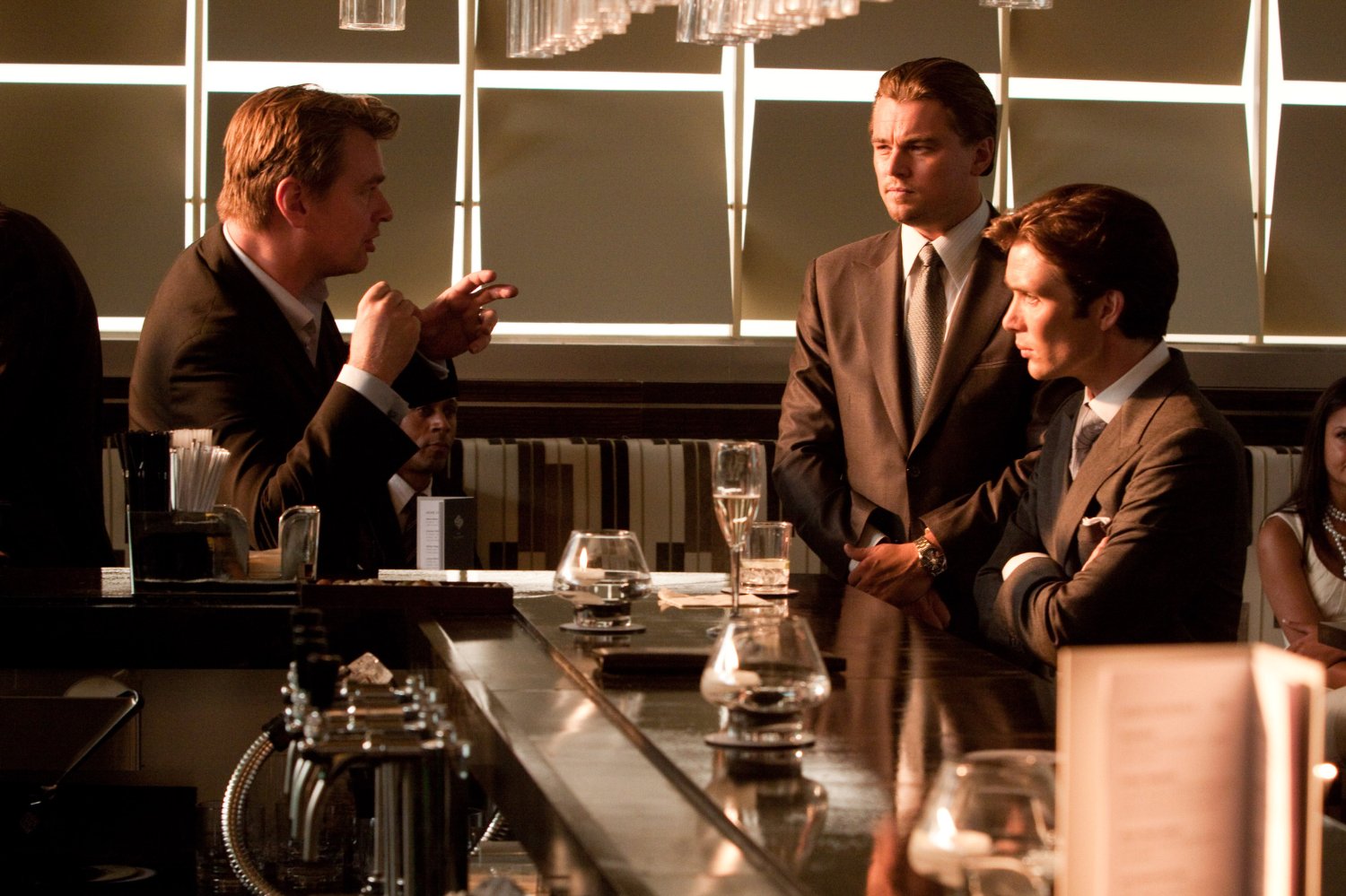
Anybody who sees an original-negative print of a film shot in IMAX is looking at the best image qual Show more
Anybody who sees an original-negative print of a film shot in IMAX is looking at the best image quality available to filmmakers today. As long as any new technology is required to measure up to that, I think film has to remain the future. Hide
Many of the filmmakers I've admired over the years have used sound in bold and adventurous ways. I d Show more
Many of the filmmakers I've admired over the years have used sound in bold and adventurous ways. I don't agree with the idea that you can only achieve clarity through dialogue. Clarity of story, clarity of emotions - I try to achieve that in a very layered way using all the different things at my disposal - picture and sound. Hide
I never considered myself a lucky person. I'm the most extraordinary pessimist, I truly am. I think Show more
I never considered myself a lucky person. I'm the most extraordinary pessimist, I truly am. I think I'm not so much a fan of science fiction as I am a fan of cinema that creates worlds, that creates an entire alternate universe that you could escape into for a couple of hours. Hide
There are filmmakers who pride themselves on "one for the studio, one for me", and I just don't see Show more
There are filmmakers who pride themselves on "one for the studio, one for me", and I just don't see it that way. I have an opportunity that very few filmmakers get, to do something on a huge scale that I can control completely and make as personal as I want, so I feel a big responsibility to make the most of it. Because there are tremendous filmmakers out there who will never get that opportunity but would do something extraordinary with it. Hide
I always find myself gravitating to the analogy of a maze. Think of film noir and if you picture the Show more
I always find myself gravitating to the analogy of a maze. Think of film noir and if you picture the story as a maze, you don't want to be hanging above the maze watching the characters make the wrong choices because it's frustrating. You actually want to be in the maze with them, making the turns at their side, that keeps it more exciting... I quite like to be in that maze. Hide
[on why his films often show multiple dimensions] It might be unusual in movies, but it's very well Show more
[on why his films often show multiple dimensions] It might be unusual in movies, but it's very well established in other media. I'm very inspired by the prints of M.C. Escher and the interesting connection-point or blurring of boundaries between art and science, and art and mathematics. I'm thinking of his Penrose steps illustrations that inspired Inception. Also, the writing of Jorge Luis Borges, the great Argentinian writer, wrote all kinds of incredible short stories that dealt with paradox. But I feel like films are uniquely suited towards addressing paradox, recursiveness, and worlds-within-worlds. [2014] Hide
At the time I did Following (1998), I was looking at the American ultra-low-budget model that didn't Show more
At the time I did Following (1998), I was looking at the American ultra-low-budget model that didn't really exist in the UK. A low-budget film in England tended to be about £500,000 to £600,000. In America, there was a tradition of guys like Robert Rodriguez and Kevin Smith making films for thousands, and that's what we'd been doing for short films. So it was really just a case of using that knowledge and expanding it to feature length. I hear of people doing it in the UK now and I think that's a great thing. Hide
I don't look at the scale of the films in terms of money or the physical size of what we're shooting Show more
I don't look at the scale of the films in terms of money or the physical size of what we're shooting. It's in terms of my life, my time, however much I'm investing in it. It took me a couple of years to make Following (1998) and another year to take it round the festival circuit. It was and remains a huge movie to me. Hide
I didn't go to film school. I guess my whole experience has been just to make films. What I've talke Show more
I didn't go to film school. I guess my whole experience has been just to make films. What I've talked about on the commentary to the DVD of Following (1998) is the production method and how things came about. I feel like that might be a point of interest that a lot of people might be thinking about with their own films, so I've tried to put in as much of the detail as I can remember. The more I've thought about it, the more I've realized that everybody's situation is unique, and the one thing I've learned is that instead of copying someone else's model for a low-budget film, you really have to look at what you've got available and see how you can tell the story you want to tell, using the things that you have around you. That's what we did with "Following", and on the DVD I try to explain how it worked for us and what I learned from it, but at the same time suggest that it'll be different for someone else. Hide
I think there's a vague sense out there that movies are becoming more and more unreal. I know I've f Show more
I think there's a vague sense out there that movies are becoming more and more unreal. I know I've felt it. Hide
Yes, to me that's one of the most compelling fears in film noir and the psychological thriller genre Show more
Yes, to me that's one of the most compelling fears in film noir and the psychological thriller genre - that fear of conspiracy. It's definitely something that I have a fear of - not being in control of your own life. I think that's something people can relate to, and those genres are most successful when they derive the material from genuine fears that people have. Hide
As soon as television became the only secondary way in which films were watched, films had to adhere Show more
As soon as television became the only secondary way in which films were watched, films had to adhere to a pretty linear system, whereby you can drift off for ten minutes and go and answer the phone and not really lose your place. Hide
If you're trying to challenge an audience and make them look at elements in a different way, you've Show more
If you're trying to challenge an audience and make them look at elements in a different way, you've got to give them a familiar context to hang onto. But you have to be very aware that the audience is extremely ruthless in its demand for newness, novelty and freshness. Hide
[reacting to the premiere shooting in Aurora, Colorado] Speaking on behalf of the cast and crew of T Show more
[reacting to the premiere shooting in Aurora, Colorado] Speaking on behalf of the cast and crew of The Dark Knight Rises (2012), I would like to express our profound sorrow at the senseless tragedy that has befallen the entire Aurora community. I would not presume to know anything about the victims of the shooting, but that they were there last night to watch a movie. I believe movies are one of the great American art forms and the shared experience of watching a story unfold on screen is an important and joyful pastime. The movie theatre is my home, and the idea that someone would violate that innocent and hopeful place in such an unbearably savage way is devastating to me. Nothing any of us can say could ever adequately express our feelings for the innocent victims of this appalling crime, but our thoughts are with them and their families. Hide
Working with a legend like Michael Caine is about as enjoyable and relaxing an experience on set as Show more
Working with a legend like Michael Caine is about as enjoyable and relaxing an experience on set as one could hope for. His vast experience gives him an air of good-humored calm that you could almost mistake for complacency until the camera rolls, and you see his focus and efficiency nail each scene on the first take. He once told me that he's never asked for a second take -- he's happy to do one if you have an idea for him to try, but he brings a definitive interpretation to every line. His method has the casual air of effortlessness that can only come from decades of dogged hard work, and you sense that he's still as hungry for every last morsel of a part as he was when he first captured everyone's imagination. A fine actor first, and screen icon second, he's a director's dream. Hide
[on the budget of Following (1998)] We've got a pretty serious claim on being the cheapest film ever Show more
[on the budget of Following (1998)] We've got a pretty serious claim on being the cheapest film ever made. Hide
I think anytime you look at science fiction in movies, there are key touchstones; Metropolis (1927), Show more
I think anytime you look at science fiction in movies, there are key touchstones; Metropolis (1927), Blade Runner (1982), 2001: A Space Odyssey (1968). Whenever you're talking about getting off the planet, 2001: A Space Odyssey (1968) is somewhat unavoidable. Hide
[on casting Batman Begins (2005)] Batman is a marvelously complex character - somebody who has absol Show more
[on casting Batman Begins (2005)] Batman is a marvelously complex character - somebody who has absolute charm and then, just like that, can turn it into ice-cold ruthlessness. There are very few actors who can do that, and Christian is one of them. Hide
I sometimes get frustrated with studio executives - and indeed critics - who will watch a film in a Show more
I sometimes get frustrated with studio executives - and indeed critics - who will watch a film in a very linear way and make notes as they go, because that's not how movies work. You get to the end - the audience gets to the end - and then you take about five minutes to decide "Okay, what was all that?" and your brain really looks at everything in a different way and then you decide. And that's why endings are so important and that's why you really have to get to the end of a movie before you know what it is. Hide
A lot of it is being done in commercials and music videos. I've never done them, but I think that th Show more
A lot of it is being done in commercials and music videos. I've never done them, but I think that those are forms in which cross-cutting and parallel action are absolutely standard and accepted as a mainstream language. Filmmakers like myself enjoy the fruits of that experimentation and absorption by the mainstream. I think people's capacity to absorb a fractured mise-en-scene is extraordinary now compared to forty years ago. Hide
If I don't need to be directing the shots that go in the movie, why do I need to be there at all? Th Show more
If I don't need to be directing the shots that go in the movie, why do I need to be there at all? The screen is the same size for every shot. The little shot of, say, a watch on someone's wrist, will occupy the same screen size as the shot of a thousand people running down the street. Everything is equally weighted and needs to be considered with equal care, I really do believe that. I don't understand the criteria for parceling things off. Many action films embrace a second unit taking on all of the action. For me, that's odd because then why did you want to do an action film? Hide
[on different acting styles] The best actors instinctively feel out what the other actors need, and Show more
[on different acting styles] The best actors instinctively feel out what the other actors need, and they just accommodate it. Hide
[on his cinematic inspirations for The Dark Knight (2008)] I always felt Heat (1995) to be a remarka Show more
[on his cinematic inspirations for The Dark Knight (2008)] I always felt Heat (1995) to be a remarkable demonstration of how you can create a vast universe within one city and balance a very large number of characters and their emotional journeys in an effective manner. Hide
Films are subjective - what you like, what you don't like. But the thing for me that is absolutely u Show more
Films are subjective - what you like, what you don't like. But the thing for me that is absolutely unifying is the idea that every time I go to the cinema and pay my money and sit down and watch a film go up on-screen, I want to feel that the people who made that film think it's the best movie in the world, that they poured everything into it and they really love it. Whether or not I agree with what they've done, I want that effort there-I want that sincerity. And when you don't feel it, that's the only time I feel like I'm wasting my time at the movies. Hide
Every film should have its own world, a logic and feel to it that expands beyond the exact image tha Show more
Every film should have its own world, a logic and feel to it that expands beyond the exact image that the audience is seeing. Hide
[on Memento (2000)] The budget was about £ 3 million, which is low for an independent film - but ye Show more
[on Memento (2000)] The budget was about £ 3 million, which is low for an independent film - but yes, it was a huge leap of faith. "Memento" was clearly on a bigger scale than Following (1998) but, at the same time, there were very strong stylistic connections. People want to see something that shows them you can do what you say. That's the trick. Hide
[on projecting on film vs. digital] It's got considerably better color reproduction and higher resol Show more
[on projecting on film vs. digital] It's got considerably better color reproduction and higher resolution when well projected. I think that people have in their minds, when they think of film projection, bad film projection - which isn't great, it's certainly true. But the highest quality film projection, you know, to my eye - and even in technical terms - exceeds anything digital projection is capable of. I think that, as far as standardizing the industry goes, then obviously digital is a powerful logistical tool for doing that and for keeping a consistent level of quality. But I don't see any reason we need to standardize. I mean, yes, it's cheaper. But the music industry doesn't standardize. No other industry standardizes. You know, Broadway plays don't standardize - you build the set you need and you configure the theater how you want it. We've had massive success on this film [Interstellar] with the theaters where we went in and literally put a projector in the booth and said, "Okay, for the run of this movie, this is how we're going to do it," you know, whether it was the 70 mm in the Chinese or 70 mm at the Cinerama Dome or whatever - those screens did incredibly well for us. People see it as an old-fashioned mentality, but it's not. It's about putting on a show for the audience in the venues where we can put on something special, something extraordinary. Yes, it requires money to do that, but if you can do it, why not? If it can pay for itself, why not? Hide
We all wake up in the morning wanting to live our lives the way we know we should. But we usually do Show more
We all wake up in the morning wanting to live our lives the way we know we should. But we usually don't, in small ways. That's what makes a character like Batman so fascinating. He plays out our conflicts on a much larger scale. Hide
The procedure is basically to try to get into film festivals. I'm half American, so I was able to co Show more
The procedure is basically to try to get into film festivals. I'm half American, so I was able to come over to America and live here and start battering the American film festivals. There are a lot of great festivals, not just Sundance. So the key is to get it screened at a festival and start interesting people there. Hide
[on using CGI in Batman Begins (2005)] I think there's a vague sense out there that movies are becom Show more
[on using CGI in Batman Begins (2005)] I think there's a vague sense out there that movies are becoming more and more unreal, I know I've felt it. The demand we put on ourselves was to be as spectacular as possible, but not depend on computer graphics to do it. Hide
Superheroes fill a gap in the pop culture psyche, similar to the role of Greek mythology. There isn' Show more
Superheroes fill a gap in the pop culture psyche, similar to the role of Greek mythology. There isn't really anything else that does the job in modern terms. For me, Batman is the one that can most clearly be taken seriously. He's not from another planet, or filled with radioactive gunk. I mean, Superman is essentially a god, but Batman is more like Hercules: he's a human being, very flawed, and bridges the divide. Hide
But there's a very limited pool of finance in the UK. To be honest, it's a very clubby kind of place Show more
But there's a very limited pool of finance in the UK. To be honest, it's a very clubby kind of place. In Hollywood there's a great openness, almost a voracious appetite for new people. In England there's a great suspicion of the new. In cultural terms, that can be a good thing, but when you're trying to break into the film industry, it's definitely a bad thing. I never had any luck with interesting people in small projects when I was doing Following (1998). Never had any support whatsoever from the British film industry, other than Working Title, the company that [producer] Emma Thomas was working for at the time. They let me use their photocopier, stuff like that, which is not to be underestimated. Hide
...I studied English Literature. I wasn't a very good student, but one thing I did get from it, whil Show more
...I studied English Literature. I wasn't a very good student, but one thing I did get from it, while I was making films at the same time with the college film society, was that I started thinking about the narrative freedoms that authors had enjoyed for centuries and it seemed to me that filmmakers should enjoy those freedoms as well. Hide
The term 'genre' eventually becomes pejorative because you're referring to something that's so codif Show more
The term 'genre' eventually becomes pejorative because you're referring to something that's so codified and ritualised that it ceases to have the power and meaning it had when it first started. What I'm trying to do is to create modern equivalents that speak to me of those tropes that have more of the original power. Hide
I have always been a huge fan of Ridley Scott and certainly when I was a kid. Alien (1979), Blade Ru Show more
I have always been a huge fan of Ridley Scott and certainly when I was a kid. Alien (1979), Blade Runner (1982) just blew me away because they created these extraordinary worlds that were just completely immersive. I was also an enormous Stanley Kubrick fan for similar reasons. Hide
We're definitely well into a phase where our actors are not willing to brand themselves as movie sta Show more
We're definitely well into a phase where our actors are not willing to brand themselves as movie stars, the way actors of the past did. When you look at a guy like Christian (Bale), whether he's wearing a mask or not, this is one of our great actors. But he wants to be different in every film. He doesn't want the audience to go to a 'Christian Bale movie'. He wants them to come see the character he's playing. Hide
[regarding his canceled Howard Hughes film] Luckily, I managed to find another wealthy, quirky chara Show more
[regarding his canceled Howard Hughes film] Luckily, I managed to find another wealthy, quirky character who's orphaned at a young age. Hide
For me, The Dark Knight Rises (2012) is specifically and definitely the end of the Batman story as I Show more
For me, The Dark Knight Rises (2012) is specifically and definitely the end of the Batman story as I wanted to tell it, and the open-ended nature of the film is simply a very important thematic idea that we wanted to get into the movie, which is that Batman is a symbol. He can be anybody, and that was very important to us. Not every Batman fan will necessarily agree with that interpretation of the philosophy of the character, but for me it all comes back to the scene between Bruce Wayne and Alfred in the private jet in Batman Begins (2005), where the only way that I could find to make a credible characterization of a guy transforming himself into Batman is if it was as a necessary symbol, and he saw himself as a catalyst for change and therefore it was a temporary process, maybe a five-year plan that would be enforced for symbolically encouraging the good of Gotham to take back their city. To me, for that mission to succeed, it has to end, so this is the ending for me, and as I say, the open-ended elements are all to do with the thematic idea that Batman was not important as a man, he's more than that. He's a symbol, and the symbol lives on. Hide
We tried with all three [Batman] films, but in the most extreme way with The Dark Knight Rises (2012 Show more
We tried with all three [Batman] films, but in the most extreme way with The Dark Knight Rises (2012), what I call this sort of snowballing approach to action and events. We experimented with this in The Dark Knight (2008), where the action is not based on clean and clear set pieces the way Batman Begins (2005) was, but we pushed it much further in this film. The scope and scale of the action is built from smaller pieces that snowball together so you're cross-cutting, which I love doing, and trying to find a rhythm in conjunction with the music and the sound effects, so you're building and building tension continuously over a long sustained part of the film, and not releasing that until the very last frame. It's a risky strategy because you risk exhausting your audience, but to me it's the most invigorating way of approaching the action film. It's an approach I applied with Inception (2010) as well, to have parallel strands of tension rising and rising and then coming together. In "The Dark Knight Rises", from the moment the music and sound drop and the little boy starts singing "The Star-Spangled Banner", it's kind of like the gloves are coming off. I've been amazed and delighted how people have accepted the extremity of where things go. Hide
[on Kodak's new Super 8 camera] The news that Kodak is enabling the next generation of filmmakers wi Show more
[on Kodak's new Super 8 camera] The news that Kodak is enabling the next generation of filmmakers with access to an upgraded and enhanced version of the same analogue technology that first made me fall in love with cinematic storytelling is unbelievably exciting. [2016] Hide
Christopher Nolan's FILMOGRAPHY
All
as Actor (16)
as Director (9)
as Creator (7)














